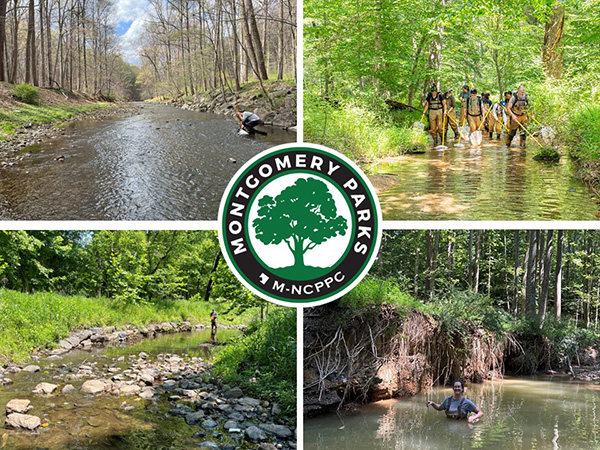Job Opportunity: Resource Analysis Program Assistant -
Seasonal (M-NCPPC - Montgomery Parks)
Montgomery Parks, part of the Maryland-National Capital Park & Planning Commission, is hosting two paid, part-time seasonal employment opportunities.
Candidates eager to monitor stream health and protect waterways from pollution will work alongside specialists in the Resource Analysis section to implement a variety of biological monitoring, ecological restoration, stormwater management, and GIS projects.
Find more info and apply at:
https://www.governmentjobs.com/careers/mncppc/jobs/5207083/resource-analysis-program-assistant-seasonal.

Job Opportunity: Operation Osprey (WATER QUALITY DATA MANAGER)
The OPERATION OSPREY mission is to conduct an annual Osprey nesting and population survey in the Severn River watershed as well as engage and educate the public about the raptors migratory life and behaviors. The Osprey serves as a touchstone of the health of our aquatic ecosystem since their survival is completely dependent on harvesting fish from our waters. The pillars of Operation Osprey include Nest Monitoring, Engagement and Education. Our NEST MONITORING surveys and specific nest seasonal observations will generate an annual, comprehensive inventory of osprey nests and their populations living in the Severn River watershed. We created the Severn River Watershed Osprey census tracking system that records: nest location, return dates of resident birds to nests, mated pairs, number of chicks born (June), surviving juveniles (August), nests with single birds, and dates when birds migrate to South America. We now desire to integrate 8 years of water quality monitoring data collected by the Severn River Association (SRA) to portray conditions and trends across our watershed.
See job announcement for more details and directions on how to apply.
The Green Life: How to Be Environmentally Conscious in College
College is a time of discovery. If you’re like many students, you’re starting to understand the things you are truly passionate about. Whether it’s social justice or political change, college can be a great time to start making a difference. If you’re driven to make our planet a greener place, you don’t have to wait until graduation to start making a real impact. You can start advocating for environmental change right from your college campus. In big ways and in small ways, there are countless steps you can take to make your contribution to environmental conservation in college. With more colleges doing their part to go green, you can even make a positive impact simply by enrolling. Between picking an environmentally friendly campus, educating others, and advocating for your cause, your little actions can make a big change. Learn what you can do to become a green student and find out how you can do your part to help slow climate change one day at a time. -
https://www.edumed.org/resources/going-green-in-college/
Get Involved in a Committee!
The Groundwater Committee is re-forming after a period of inactivity. This committee will promote and facilitate collaboration on issues related to the monitoring and assessment of the quality and quantity of groundwater. It will consider the current state of groundwater monitoring, and will explore the need for documenting and disseminating information on groundwater monitoring activities. The Committee may promote the sharing and accessibility of groundwater quality data, and may consider and make recommendations on the needs, protocols and quality standards for monitoring in relation to specific threats or stressors to groundwater. If you are interested in bringing your ideas for improving the understanding of groundwater in Maryland, please contact Heather Quinn (
[email protected]).